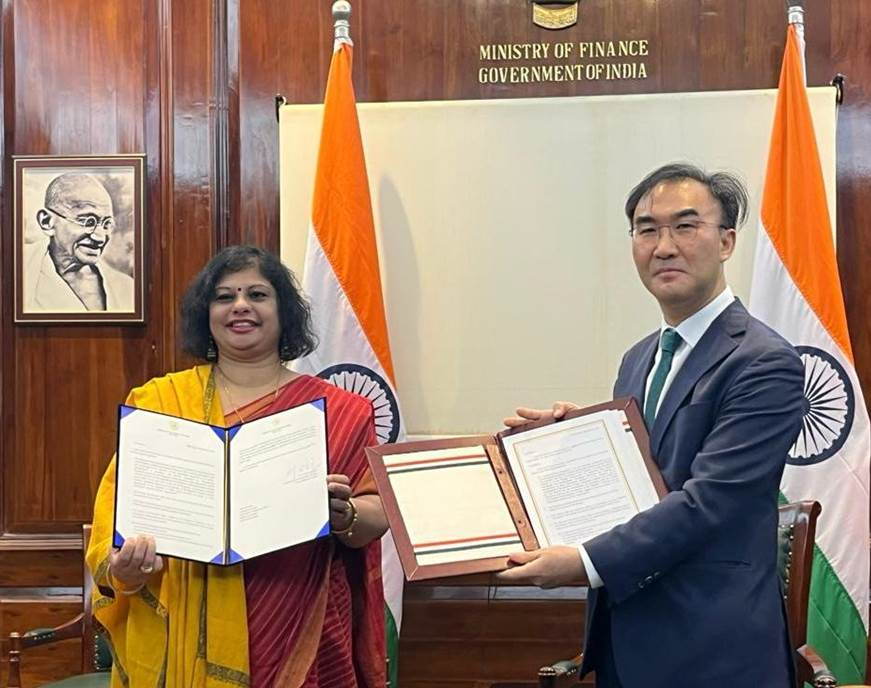India and Korea Launch 'Strengthening Vocational Education and Training in Mechatronics' Project
Korea’s expertise in advanced vocational training and its robust industrial base will play a crucial role in enhancing India’s educational capabilities in mechatronics.

- Country:
- India
On 20th January 2025, the Government of India and the Republic of Korea signed an Exchange of Notes for a landmark technical cooperation project titled ‘Strengthening Vocational Education and Training in Mechatronics in India’ in New Delhi. This initiative, the first of its kind under the assistance of the Korea International Cooperation Agency (KOICA), aims to elevate India’s vocational education sector, particularly in the field of mechatronics, and foster a skilled workforce aligned with industry needs.
The signing ceremony was attended by Ms. Manisha Sinha, Additional Secretary, Department of Economic Affairs, Ministry of Finance, representing the Government of India, and H.E. Mr. Lee Seong-ho, Ambassador of the Republic of Korea to India, on behalf of the Republic of Korea.
Project Overview
The two-year project is designed to establish a robust foundation for vocational education and training in mechatronics in India. It will be implemented by the National Council of Educational Research and Training (NCERT) at the Regional Institute of Education (RIE) in Bhopal, Madhya Pradesh. This initiative is set to help pilot mechatronics education in India by developing specialized curriculum, textbooks, and teacher’s manuals. In addition to educational resources, the project will provide necessary equipment for hands-on training, while also building the capacity of teachers in mechatronics.
A key component of the project is to foster collaboration between the education sector and industry players, ensuring that the curriculum is closely aligned with current industry requirements. By bridging the gap between education and industry, the project will also facilitate networking opportunities for students, teachers, and employers within the mechatronics field.
Bilateral Cooperation and Strategic Partnership
The project is part of India’s ongoing collaboration with the Republic of Korea in the field of development cooperation. In October 2016, Korea was designated as India’s Official Development Assistance (ODA) partner. The signing of the Exchange of Notes for this project further strengthens the already established Special Strategic Partnership between India and South Korea, which was elevated in 2015.
Korea’s expertise in advanced vocational training and its robust industrial base will play a crucial role in enhancing India’s educational capabilities in mechatronics. This project is a step toward building a skilled workforce that is equipped to meet the growing demand for mechatronics professionals in India’s expanding industrial sector.
Significance of the Project
This collaboration between India and South Korea underscores the growing importance of vocational education and training as key drivers of economic growth and innovation. By focusing on mechatronics, the project aligns with India’s broader ambitions to strengthen its manufacturing and industrial sectors under initiatives like Make in India and Skill India.
The partnership with KOICA and South Korea’s strong technical expertise will enable India to develop a world-class mechatronics education system, contributing to the country’s long-term economic development by improving employability and bridging the skills gap in emerging technologies.
The project also reflects the commitment of both countries to expanding their cooperation in education, technology, and industry, creating new opportunities for innovation, development, and bilateral ties.
As the project progresses, it is expected to set a precedent for similar educational collaborations in other technical fields, further cementing the strategic and economic relationship between India and the Republic of Korea.










